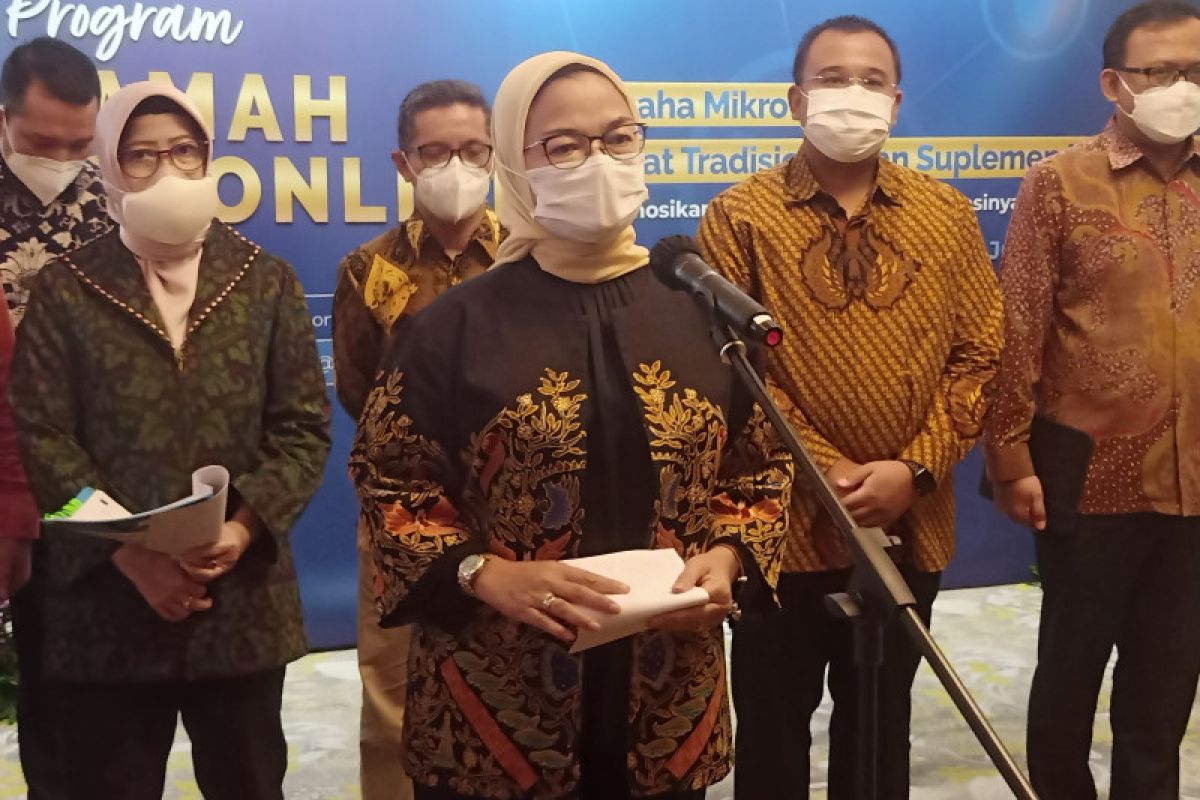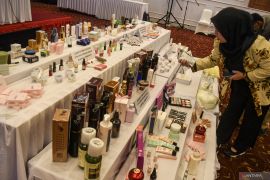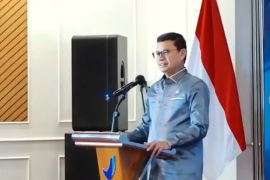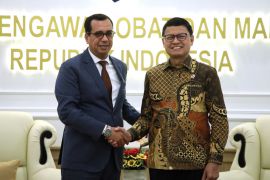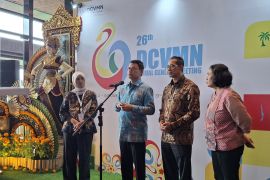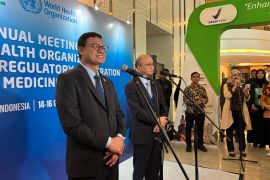“We took down 286,844 links in 2021 and 126,331 links from January to April 2022,” acting deputy for drug and food enforcement at BPOM, Mohamad Kashuri, said after the launch of the ‘Friendly Zone for Online Promotion of MSMEs and Health Supplements’ in Jakarta on Friday.
After detecting online promotion links violating market regulations, the BPOM submitted a recommendation to the Ministry of Communication and Informatics to take them down since they did not meet the regulations.
In general, the online promotion links provided misleading information. In addition, the advertisers and distributors of traditional medicine products and health supplements had no marketing authorization.
Citing examples of misleading promotions, deputy for supervision of traditional medicines, health supplements, and cosmetics at BPOM, Reri Indriani, said some claimed they could kill the coronavirus and increase male virility in a short time.
"We have agreed that any claims related to the product must be supported by scientific data," Indriani added.
Related news: Present objective information on traditional medicines: BPOM
As many as 80.21 percent of advertisement violations for traditional medicines and health supplements on online media were made by non-manufacturers or distributors, she informed.
Of the total online advertising violations, around 61 percent were found on marketplace platforms and most were related to micro, small, and medium enterprise (MSME) players.
At the same event, the director of digital economy at the Ministry of Communication and Informatics, I Nyoman Adhiarna, said that the advertising links for traditional medicines and health supplements that violated regulations were taken down within 1x24 hours.
"We are looking for algorithms and working with all parties," he added.
Meanwhile, the head of BPOM, Penny K. Lukito, said that according to the agency’s monitoring in 2021, the number of online advertisements violating regulations was much higher for traditional medicines and health supplements (61.12 percent) than for conventional advertisements (21.76 percent).
"BPOM has a mission to protect the public from the risks of drugs and food, including traditional medicinal products and health supplements advertisements with misleading information," she added.
This situation has arisen in line with the increasing trend of business actors joining the online market and the uptick in the volume of transactions using electronic money in Indonesia. The large volume of online transactions has not been accompanied by appropriate promotions or advertisements, Lukito said.
Related news: Demand for traditional medicines, cosmetics up amid pandemic: BPOM
Related news: Consumers foundation warns people of traditional medicines
Translator: Andi Firdaus, Resinta S
Editor: Suharto
Copyright © ANTARA 2022
